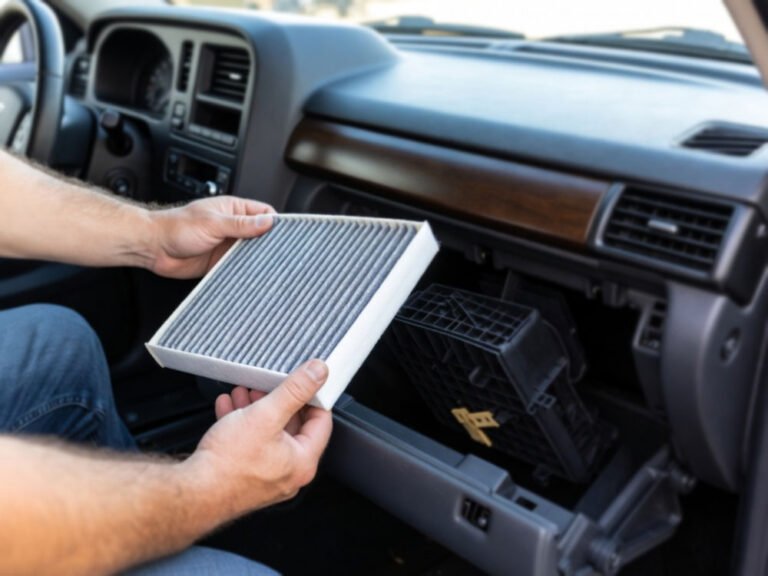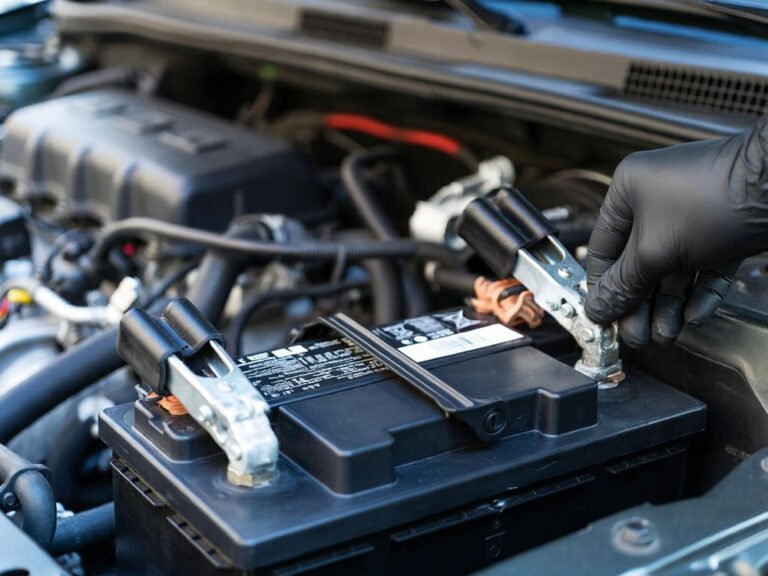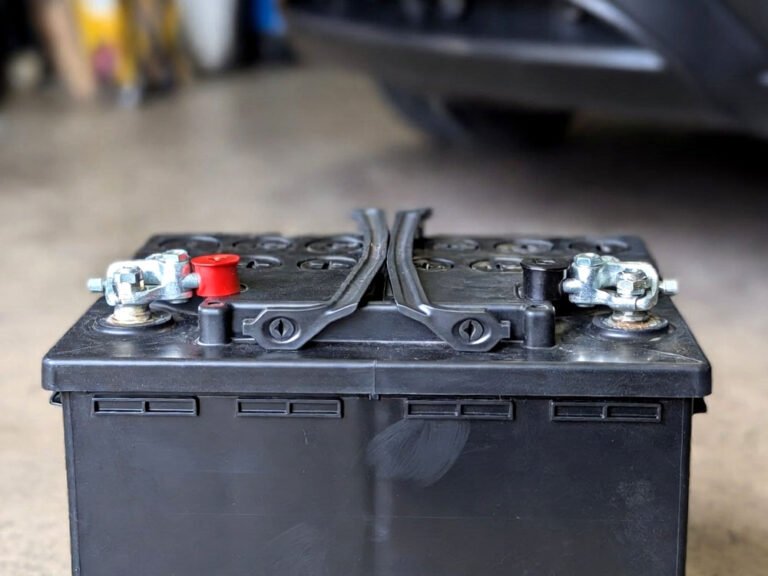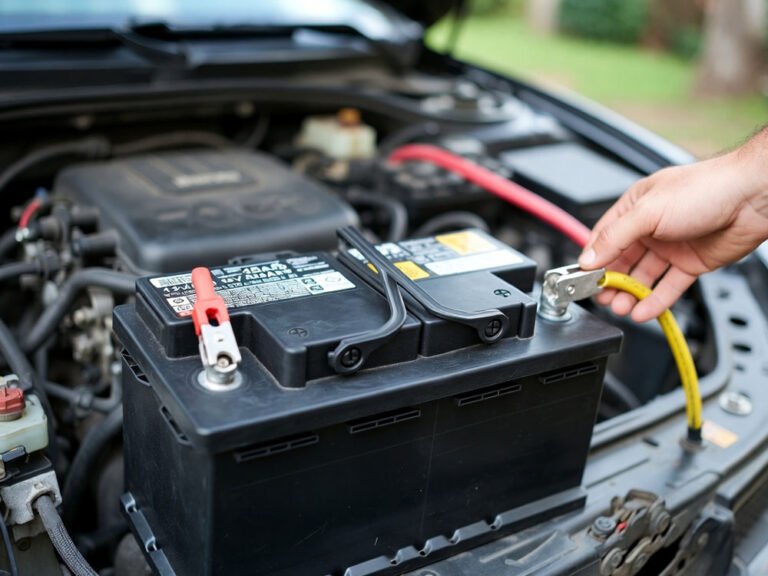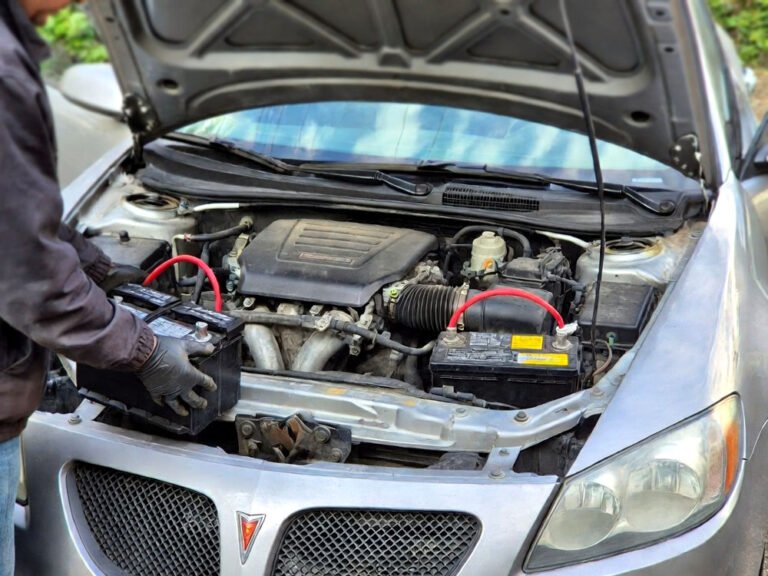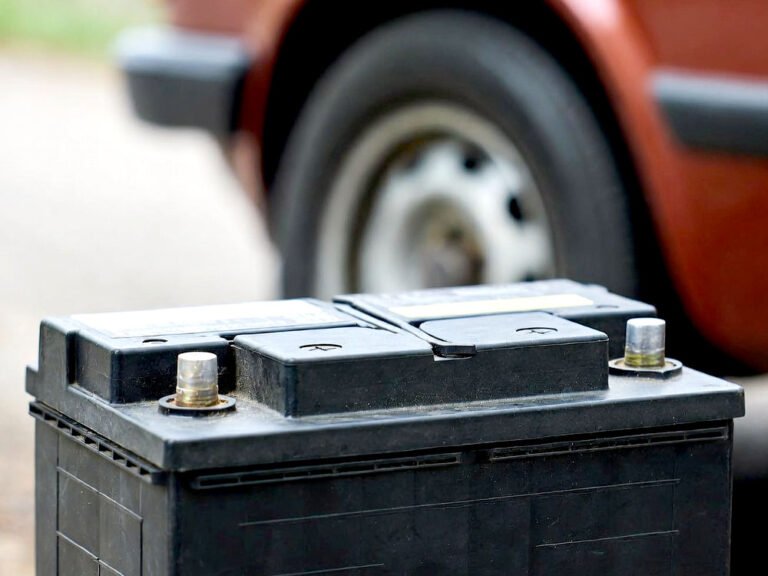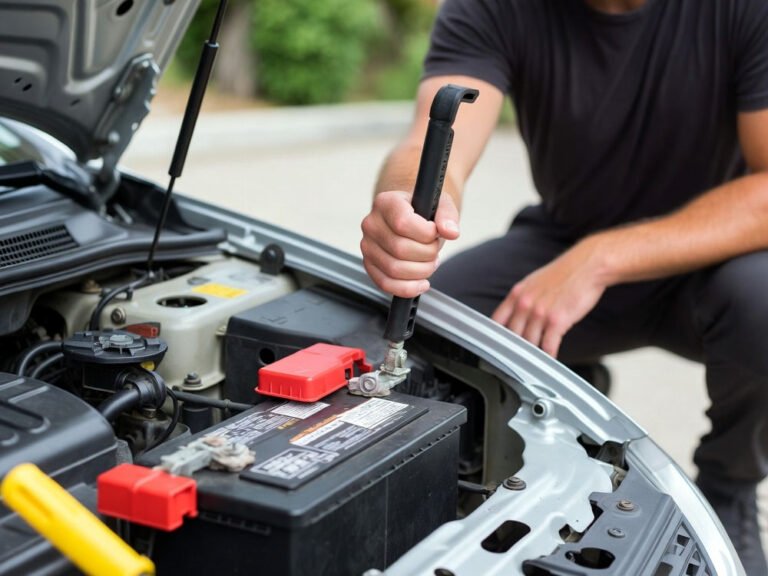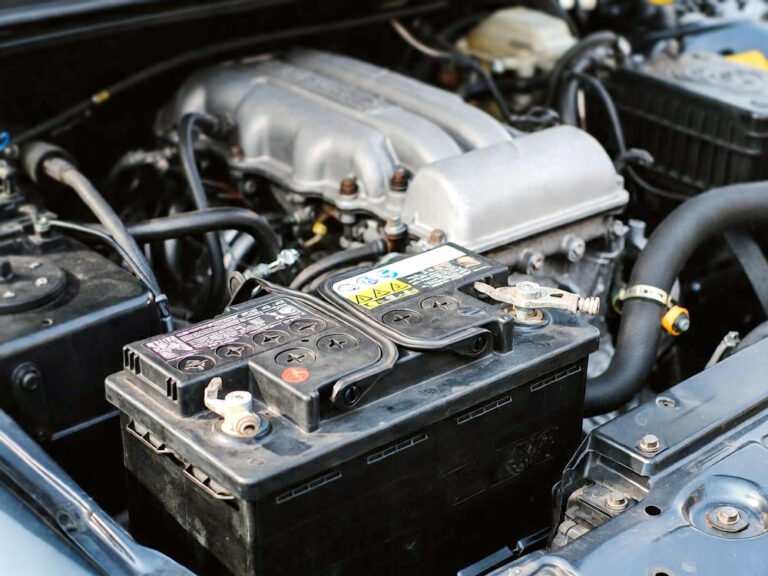You are driving peacefully, and suddenly, your car jerks like it’s trying to jump forward or shake hard. This can feel scary, right? You might think something is really wrong with your car. But don’t worry, you’re not alone. This happens to many drivers. The exact reason your car jerks while driving is usually because of fuel problems, transmission issues, or dirty parts in the engine. In this article, you will learn everything in simple language about why your car jerks and how you can fix it without stress.
Engine Problems Causing Jerking
Your car’s engine is like its heart. If the engine doesn’t work right, your car can jerk while driving. One common reason is spark plug issues. Spark plugs help your engine start and keep running smoothly. If they get old or dirty, your engine can misfire, which means it doesn’t fire correctly. That can make the car shake or jerk.
Another problem can be with fuel injectors. These parts spray fuel into the engine. If they are clogged or dirty, fuel won’t flow correctly, and your car may jerk. Also, if the air filter is dirty, it can stop enough air from reaching the engine. Your engine needs the right mix of air and fuel to run smoothly. If it doesn’t get that, it starts to jerk or shake while driving.
Sometimes, the engine mounts are broken or worn out. Engine mounts are what hold the engine in place. If they are loose or damaged, your engine can move a little inside the car when you drive. That movement feels like jerking.
Also, sensors like the mass airflow sensor and oxygen sensor can cause problems. These sensors tell the engine how much fuel or air it needs. If they give wrong readings, your engine might not run right and start jerking.
Old or bad motor oil can also make the engine struggle. If you have not changed your oil in a long time, it becomes thick and dirty. That makes the engine work harder and jerk more, especially when you go uphill or drive faster.
Lastly, overheating can also be a big cause. If your car engine gets too hot, it can lose power. Then it starts jerking when you press the gas. That is your engine telling you it needs help.
- Dirty or old spark plugs can cause misfiring
- Clogged fuel injectors can stop smooth fuel flow
- Dirty air filter limits airflow to the engine
- Bad engine mounts can cause engine to shake
- Sensors like MAF and O2 can give wrong readings
- Old motor oil makes engine work harder
- Engine overheating leads to jerking
Transmission Trouble Making the Ride Rough
The transmission in your car helps to change gears smoothly. If there is something wrong with it, your car can jerk while moving, especially when you speed up or slow down. A big reason for jerking is low or dirty transmission fluid. This fluid keeps the parts inside your transmission moving smoothly. If it’s too low or dirty, the transmission may slip or shift hard, which makes your car jerk.
Automatic cars often show this problem more when the gear shifts suddenly. It feels like a sudden pull or shake. Manual cars may jerk if the clutch is not working well. If the clutch is slipping or not catching correctly, your car will jerk when changing gears.
Sometimes, the transmission control module, which is like a small computer, gets confused or has a problem. It may send wrong signals about when to change gears. That also leads to jerking. If you notice your car jerks more in stop-and-go traffic or while driving uphill, it could be this issue.
Another cause can be worn-out gears. Over time, gears get damaged or lose their smooth edges. That makes it hard for them to connect properly. When this happens, your car jerks when changing speed or shifting gear.
Also, if your car has a CVT (continuously variable transmission), jerking might happen when the system gets hot or when the CVT belt starts to wear down. These are very sensitive parts, and any small issue can cause your car to shake while moving.
- Low or dirty transmission fluid affects gear shift
- Clutch problems cause jerking in manual cars
- Bad transmission control module gives wrong signals
- Worn gears do not shift smoothly
- CVT belt problems cause jerks while moving
- Jerking happens more in traffic or on hills
Fuel System Issues Causing Poor Drive
Your fuel system is responsible for giving your engine the fuel it needs. If something blocks or reduces this fuel, your car may jerk while driving. A common reason is a clogged fuel filter. This filter stops dirt and debris from getting into your fuel lines. Over time, it gets full and blocks fuel from reaching the engine properly.
Another reason is a failing fuel pump. The fuel pump sends fuel from the tank to the engine. If it’s weak or broken, fuel does not get there in time. This causes the engine to struggle and jerk when you press the gas pedal.
Bad fuel quality can also create problems. If you use low-quality gas or if water gets into the fuel tank, your engine may not burn fuel properly. This creates poor power and leads to jerking.
Sometimes, fuel lines have air bubbles or small leaks. That means fuel can’t move with the right pressure. When this happens, the engine runs unevenly, and the car jerks. Also, the fuel injectors can become dirty or blocked, which causes the same problem.
The fuel pressure regulator is another part that can cause jerking. It controls how much fuel reaches the engine. If it sends too much or too little, the car won’t drive smoothly.
- Clogged fuel filter blocks fuel flow
- Weak or broken fuel pump sends fuel too slowly
- Bad quality gas or water in tank affects engine
- Air bubbles or leaks in fuel lines make engine uneven
- Dirty fuel injectors cause power loss
- Faulty fuel pressure regulator causes jerks
Ignition System Failing to Work Right
The ignition system starts your car and keeps the engine running. If something is wrong here, your car might jerk while driving. One common issue is bad spark plugs. These tiny parts light the fuel in your engine. If they are dirty, damaged, or old, your engine may not burn fuel the right way. That makes the car shake or jerk.
Another problem can be with the ignition coils. These send power to the spark plugs. If a coil is bad, the spark plug won’t work right. That can make the engine misfire, especially when you try to speed up.
Also, the ignition timing may be off. This means the spark happens too early or too late. When this timing is not correct, your car doesn’t run smoothly. It can feel like the engine is skipping or jerking while driving.
Sometimes, water or oil gets into the spark plug area. That causes poor contact, and the spark plug fails to fire. This makes your engine struggle and jerk.
Lastly, bad wiring or loose connections in the ignition system can also lead to jerking. If wires are broken or not connected right, power won’t reach the engine smoothly. That causes the car to shake, especially when going fast.
- Bad or old spark plugs cause poor ignition
- Faulty ignition coils stop spark plugs from working
- Incorrect ignition timing leads to rough driving
- Water or oil near spark plugs causes misfires
- Loose or broken wires create power issues
Air Intake and Exhaust System Problems
Your car needs clean air to burn fuel. It also needs a clear path to push out used air (exhaust). If there is any block in these systems, your car may jerk while moving. A very common issue is a dirty air filter. If the filter is full of dirt, less air goes into the engine, and the car jerks.
Another problem is with the throttle body. This part controls how much air enters the engine when you press the gas. If it’s dirty or sticky, it does not open right. That can cause rough driving and jerking.
The mass airflow sensor (MAF) also plays a big part. It tells the engine how much air is coming in. If this sensor is dirty or broken, your engine may get the wrong amount of fuel. That causes jerking and uneven power.
The exhaust system can also be a cause. If your catalytic converter is blocked, exhaust gases can’t leave the car easily. That puts back pressure on the engine and causes shaking or jerking. Muffler problems can also make this worse.
Vacuum leaks in the intake system also cause air problems. When extra air enters the engine from a leak, it changes the air-fuel balance. That can cause your car to jerk when driving.
- Dirty air filter limits engine air
- Bad throttle body blocks smooth airflow
- Faulty MAF sensor sends wrong air data
- Blocked catalytic converter causes engine pressure
- Muffler damage can affect exhaust flow
- Vacuum leaks disturb air-fuel mix
Dirty or Damaged Sensors and Electronics
Modern cars use many sensors and electronic parts. These help your car run right and give you a smooth drive. But if one of these sensors is dirty or not working, your car might jerk. One common sensor is the oxygen sensor. It checks how much fuel is burned and helps balance air and fuel. If it’s dirty or broken, your engine gets wrong data and starts to jerk.
The throttle position sensor is another one. It tells the car how far the gas pedal is pressed. If this is broken, the car may jump or jerk when you push the gas.
Another important part is the electronic control unit (ECU). It controls many things in your engine. If there’s a small problem in it, your car may not run well. Sometimes just resetting it can help. But if it’s damaged, you may need a mechanic to check.
Even small wires and connectors can be the cause. If a wire is loose or rusty, the signal between sensors and the car’s brain does not travel right. That causes poor engine control and jerking.
Sensors near the wheels can also cause jerking if they send wrong speed or traction data. Your car may act like it’s slipping or trying to stop.
- Bad oxygen sensor gives wrong fuel data
- Faulty throttle position sensor causes uneven speed
- ECU problems lead to wrong engine commands
- Loose wires break signals between parts
- Wheel sensors send wrong traction signals
Final Thoughts
If your car jerks while driving, it’s usually trying to tell you something is wrong. It could be the engine, transmission, fuel system, or even small sensors. Don’t ignore the signs. A small issue now can become a big and costly one later. Use this guide to understand the real reason behind the jerks. Fixing it early can make your car feel smooth and safe again. Always take your car to a good mechanic if you’re not sure what’s causing the problem.
| Problem Area | Cause | Signs of Jerking | Common Fix |
|---|---|---|---|
| Engine | Bad spark plugs, misfire | Shaking, sudden stop and go | Replace spark plugs, check engine oil |
| Transmission | Low fluid, gear slipping | Jerks when shifting gears | Change transmission fluid |
| Fuel System | Clogged filter, bad pump | Jerks when speeding up | Replace filter, fix fuel pump |
| Ignition System | Bad coils, wrong timing | Engine stumbles | Replace coils, check timing |
| Air & Exhaust System | Dirty filter, blocked catalytic converter | Jerks on hills or under load | Clean or replace filter, fix exhaust |
| Sensors & Electronics | Bad MAF or O2 sensor | Unstable engine speed | Clean or replace sensor |
| Wiring & Connections | Loose or broken wires | Random jerks | Repair or tighten connections |
Frequently Asked Questions (FAQs)
Is it dangerous to drive when the car jerks?
Yes, it can be dangerous. When a car jerks, it means something is not working right. If the issue is small, your car might still drive, but it could stop suddenly or lose power. That can cause accidents, especially on busy roads or highways. Also, if you keep driving like that, the problem can get worse. It’s always better to fix the problem early. If your car jerks often, take it to a mechanic before it becomes risky for you or others.
Can low fuel cause a car to jerk?
Yes, low fuel can make a car jerk. When there’s not enough fuel in the tank, the engine doesn’t get a steady flow of gas. That makes it hard for the car to run smoothly. You may feel jerks, especially when going uphill or speeding up. Also, dirt from the bottom of the tank can go into the fuel lines, making it even worse. Try to keep your tank at least one-quarter full to avoid this problem.
Do I need to change spark plugs if my car jerks?
Yes, bad spark plugs are a common reason for jerking. If they are dirty, old, or worn out, they don’t light the fuel correctly. That causes the engine to misfire, which feels like a jerk or shake when driving. Changing the spark plugs can make your engine run smooth again. It’s a cheap and fast fix, so if your car jerks, it’s smart to check the spark plugs first.
Is it okay to drive a car with a bad fuel injector?
It’s not a good idea. A bad fuel injector means fuel isn’t going into the engine the right way. This makes the car run rough and jerk. It can also damage the engine over time because some parts get more fuel than others. Driving like this for a long time can cause more expensive repairs. If you think a fuel injector is bad, get it checked and cleaned or replaced soon.
Can bad transmission fluid make the car jerk?
Yes, it can. Transmission fluid helps gears move smoothly. If it’s old, dirty, or too low, your car may jerk when changing gears or speeding up. You might feel it most when going from stop to drive or during quick accelerations. Fixing this is easy—just change or top up the fluid. It’s important to use the right fluid for your car.
Do I need a mechanic to fix a jerking car?
Not always, but sometimes. If it’s something simple like spark plugs or a dirty air filter, you can try to fix it yourself. But if you’ve checked those and the car still jerks, it’s best to see a mechanic. They have tools to check the deeper problems like transmission or fuel systems. Fixing it early with a mechanic can save money and stress later.
Can weather affect why my car jerks?
Yes, weather can make jerking worse. In cold weather, oil and fluids can get thicker, making the engine or transmission work harder. That may cause jerks, especially during the first few minutes of driving. In wet weather, water can get into places like the spark plugs or sensors. That also causes the engine to misfire and jerk. Always keep your car parts dry and check fluids before cold seasons.
Is it expensive to fix car jerking?
It depends on the cause. Some problems like bad spark plugs or dirty filters are cheap to fix, maybe under $50. But if the problem is in the transmission or fuel system, it can cost a few hundred dollars or more. The longer you wait, the worse the problem can get. So fixing it early can save money in the long run.


